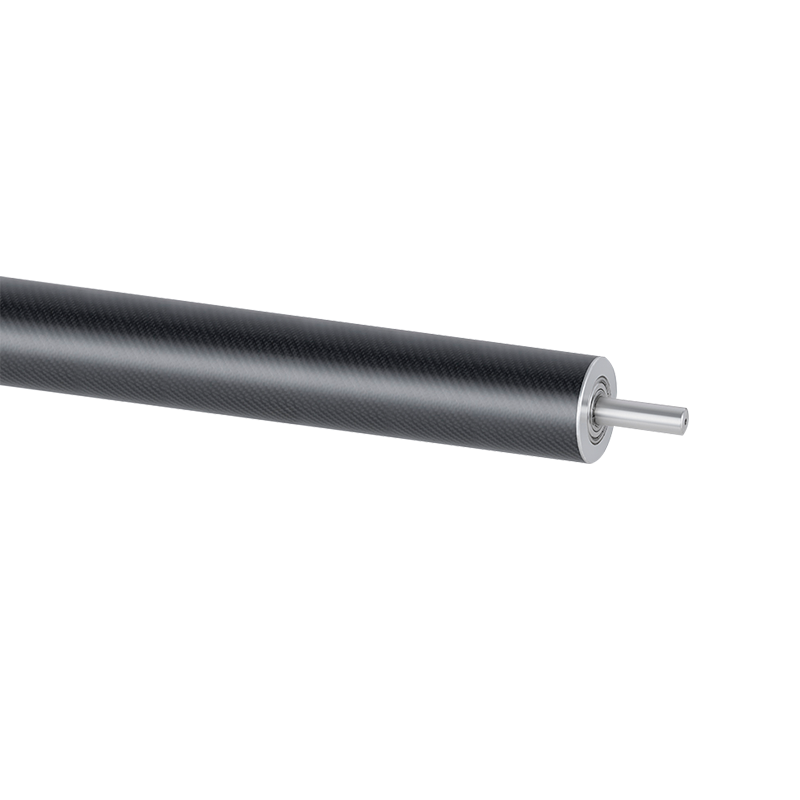Ruian Chuangbo Machinery Co., Ltd. is specialized in manufacturing of machinery parts.
Sale Wholesale Aluminum Roller Pneumatic Expanding Shaft
Aluminum rollers are increasingly being used in various manufacturing processes due to their exceptional qualities. These rollers offer a range of benefits that enhance the efficiency and productivity of industrial operations. From their light weight to their resistance to corrosion, aluminum rollers provide significant advantages in different sectors. In this article, we will explore the multiple reasons why aluminum rollers have become a preferred choice in many manufacturing environments.

One of the primary advantages of using an aluminum roller is its lightweight nature. Aluminum is known for being lighter than many other materials, such as steel or iron, making it ideal for use in roller systems. The reduced weight of aluminum rollers allows for smoother operation and less strain on machinery. This results in lower energy consumption and less wear and tear on components, ultimately pilot to cost savings in the long run. The lightweight properties of aluminum rollers also allow for easier handling and installation, reducing the time required for setup and maintenance.
Another key benefit of aluminum rollers is their reliable resistance to corrosion. Aluminum is naturally resistant to rust and corrosion, which is especially important in manufacturing environments where moisture and chemicals are often present. This corrosion resistance makes aluminum rollers a durable solution for industries such as food processing, packaging, and textiles, where sanitation and hygiene are critical. The ability of aluminum rollers to maintain their integrity in challenging environments ensures a longer lifespan and reduces the need for frequent replacements.
Aluminum rollers are also highly versatile, making them suitable for a wide range of applications. Whether used in conveyor systems, printing presses, or material handling systems, aluminum rollers can be customized to meet the specific needs of different manufacturing processes. The flexibility of aluminum rollers allows manufacturers to design systems that maximize efficiency and have less downtime. By adjusting the size, shape, and coating of the aluminum roller, companies can create solutions tailored to their exact requirements, improving overall performance.
In addition to their physical properties, aluminum rollers contribute to improved operational efficiency. The smooth surface of aluminum rollers reduces friction, allowing for smoother movement of materials along the production line. This reduction in friction helps to decrease the wear on both the roller and the materials being processed, pilot to fewer disruptions and better overall output. Aluminum rollers also promote better control over the speed and direction of the materials, ensuring a more consistent and accurate production process.
The use of aluminum rollers can also have a positive impact on sustainability efforts in manufacturing. Aluminum is a recyclable material, which means that aluminum rollers can be reused at the end of their lifecycle, reducing waste and supporting eco-friendly practices. Manufacturers who prioritize sustainability can benefit from the use of aluminum rollers as part of their commitment to reducing their environmental footprint. The recyclability of aluminum rollers contributes to the development of more sustainable production systems that lessen the consumption of raw materials.
Furthermore, aluminum rollers are cost-effective, especially when considering their long-term benefits. While the initial cost of an aluminum roller may be slightly higher than that of other materials, the savings in terms of energy efficiency, reduced maintenance, and longer lifespan make them a cost-effective solution over time. Manufacturers who invest in aluminum rollers often experience lower operational costs, thanks to the reduced need for repairs and replacements.
Another advantage of aluminum rollers is their ability to operate at higher speeds compared to other roller materials. The reduced friction and lightweight properties of aluminum allow these rollers to work at faster speeds without compromising performance. This capability is crucial in industries where high-speed production is necessary, such as packaging and printing. The ability to maintain performance at higher speeds ensures that aluminum rollers help manufacturers meet tight production deadlines and increase throughput.
Aluminum rollers also offer reliable dimensional stability, meaning they maintain their shape and size under varying temperature and load conditions. This stability ensures that the rollers continue to perform consistently over time, providing reliable results for manufacturers. The durability of aluminum rollers under different operating conditions adds to their appeal in demanding environments.
In conclusion, aluminum rollers offer numerous benefits for manufacturing processes, including their lightweight nature, resistance to corrosion, versatility, and ability to improve operational efficiency. These rollers contribute to cost savings, sustainability, and higher-speed production, making them a valuable component in many industrial applications. The long-lasting durability and performance of aluminum rollers make them a smart choice for manufacturers looking to optimize their operations and achieve consistent, reliable results. By incorporating aluminum rollers into their systems, manufacturers can enjoy improved productivity and reduced costs, making them a wise investment for the future.




